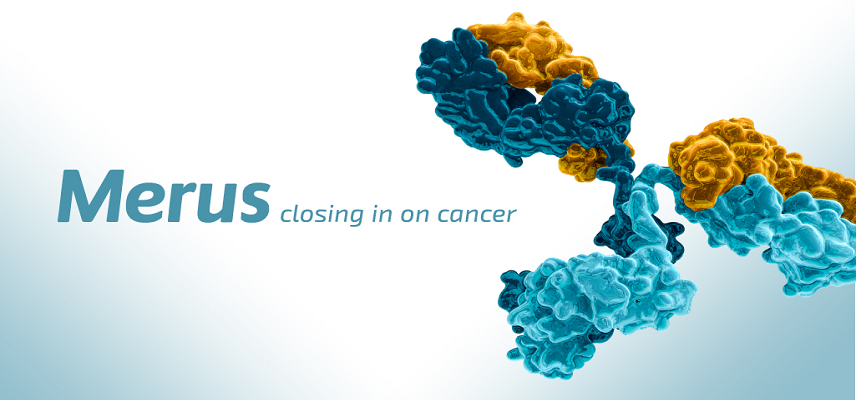Merus Begins Patient Dosing in LiGeR-HN2, a Phase 3 Trial Evaluating Petosemtamab in 2/3L r/m HNSCC
Overview
Merus N.V., a clinical-stage oncology company developing innovative, full-length multispecific antibodies (Biclonics and Triclonics), announced that the first patient has been dosed in the company’s phase 3 trial evaluating the efficacy and safety of petosemtamab, a Biclonics targeting EGFR and LGR5, compared to investigator’s choice of single agent chemotherapy or cetuximab in previously treated (2/3L) patients with recurrent/metastatic head and neck squamous cell carcinoma (r/m HNSCC) referred to as the LiGeR-HN2 trial.
Further Development of Petosemtamab
Merus has confirmed through feedback with the US Food and Drug Administration (FDA) that petosemtamab 1500 mg every two weeks is appropriate for further development in HNSCC as monotherapy, and in combination with pembrolizumab.
Words from CMO: Merus
- With petosemtamab’s strong clinical data in HNSCC and alignment with the FDA on dose, we are excited to have treated our first patient in the 2/3L phase 3 trial,” said Fabian Zohren, M.D., Ph.D., chief medical officer of Merus.
- We believe petosemtamab has the potential to become the new standard of care across r/m HNSCC.
LiGeR-HN2 Trial
- LiGeR-HN2, a phase 3 trial, will evaluate the safety and efficacy of petosemtamab compared to investigator’s choice of methotrexate, docetaxel, or cetuximab in 2/3L r/m HNSCC patients.
- The trial is open to adult patients that have progressed on or after anti-PD-1 therapy and platinum-containing therapy.
- The primary endpoints are overall response rate as assessed by BICR based on RECIST v1.1 and overall survival.
- Secondary endpoints are duration of response and progression free survival. Merus plans to enroll approximately 500 patients in the trial.
About Petosemtamab
- Petosemtamab, or MCLA-158, is a Biclonics low-fucose human full-length IgG1 antibody targeting the epidermal growth factor receptor (EGFR) and the leucine-rich repeat containing G-protein-coupled receptor 5 (LGR5).
- Petosemtamab is designed to exhibit three independent mechanisms of action including inhibition of EGFR-dependent signalling, LGR5 binding leading to EGFR internalization and degradation in cancer cells, and enhanced antibody-dependent cell-mediated cytotoxicity (ADCC) and antibody-dependent cellular phagocytosis (ADCP) activity.
About HNSCC
- Head and neck squamous cell carcinoma (HNSCC) describes a group of cancers that develop in the squamous cells that line the mucosal surfaces of the mouth, throat, and larynx.
- These cancers begin when healthy cells change and grow in an unchecked manner, ultimately forming tumours. HNSCC is generally associated with tobacco consumption, alcohol use and/or HPV infections, depending on where they develop geographically.
- HNSCC is the sixth most common cancer worldwide and it is estimated that there were more than 930,000 new cases and over 465,000 deaths from HNSCC globally in 2020.
- The incidence of HNSCC continues to rise and is anticipated to increase by 30% to more than 1 million new cases annually by 2030.
- HNSCC is a serious and life-threatening disease with poor prognosis despite currently available standard of care therapies.
About Merus
Merus is a clinical-stage oncology company developing innovative full-length human bispecific and trispecific antibody therapeutics, referred to as Multiclonics.

Optimize Your trial insights with Clival Database.
Are you exhausted from the uncertainty of trial insights pricing? Clival Database ensures the clarity in the midst of the global scenario for clinical trials to you.Clival Database is one of the best databases that offers an outstanding number of clinical trial data in terms of 50,000+ molecules and from primary regulatory markets as well as new entrants like Indian and Chinese markets.
With Clival, you get accurate positioning of historical sales data, patent database, company profiling, safety & efficacy, and prediction of launch of new innovative molecules helping you to align your research and driving down the cost.
To add value, we further break down our analytics for you so that improving your operational effectiveness; optimizing your clinical trials; and offering you accurate and high-quality data at lowest possible prices becomes possible.
Elevate your trial success rate with the cutting-edge insights from Clival database.
Check it out today and make more informed sourcing decisions! Learn More!







